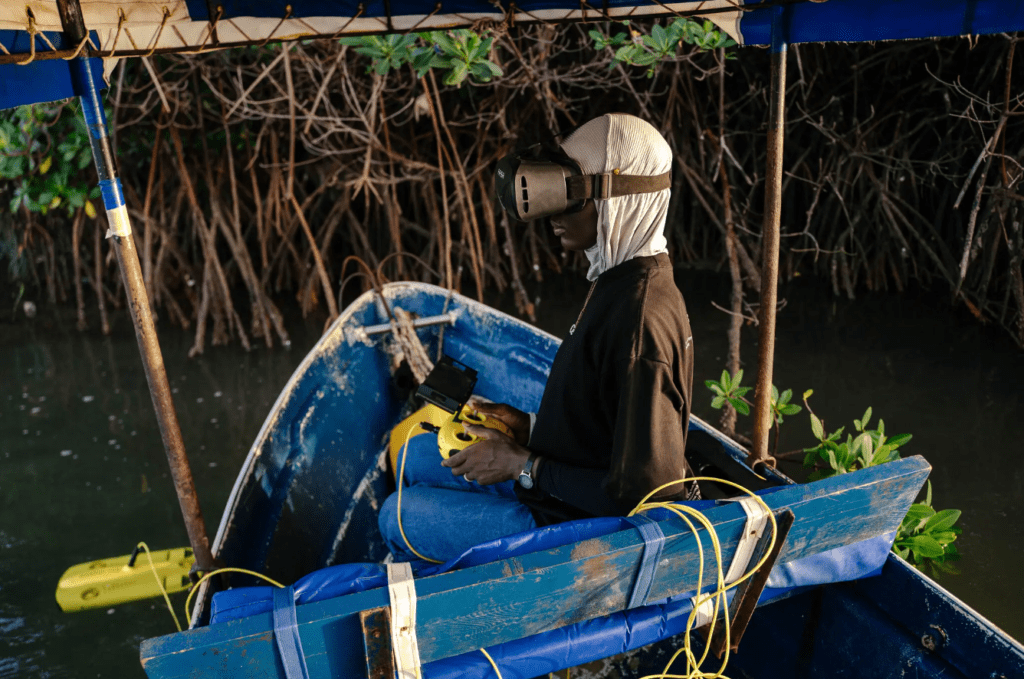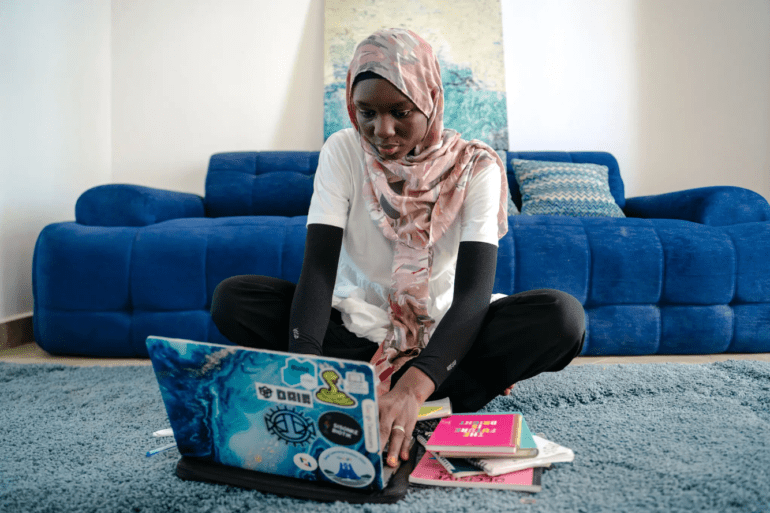TL;DR:
- Rokhaya Diagne, a Senegalese computer science major, has shifted her passion from gaming to AI-driven health solutions.
- Her goal is to leverage AI technology to combat malaria and achieve global eradication by 2030 through her startup, Afyasense.
- Ms. Diagne’s journey reflects the potential of the internet in empowering African youth in technology-related careers.
- She has received recognition for her malaria project, including awards and funding, and is focused on addressing healthcare challenges in the region.
- Her background in biology and computer science has allowed her to pursue innovative solutions in healthcare using AI.
- Ms. Diagne’s commitment to mentorship and her aspirations to expand her projects, including cancer cell detection, highlight her dedication to making a lasting impact.
Main AI News:
In her early teenage years, Rokhaya Diagne found solace in the captivating world of online video games. Days turned into nights as she battled virtual foes, until her concerned mother intervened. Recognizing her daughter’s passion, yet wary of its intensity, she threatened to send her to a psychiatrist if she didn’t curb her gaming addiction.
Fortunately, her mother’s intervention steered Rokhaya in a different direction. Today, at 25 years old, this Senegalese computer science major, now residing in Dakar, is channeling her energy into a remarkable mission: leveraging artificial intelligence (AI) to combat malaria and striving to achieve global eradication by 2030 through her health startup.
“Video games taught me a lot of things,” reflects Ms. Diagne. “They gave me problem-solving skills, which I don’t regret developing.“
In a region where a burgeoning youth population is increasingly connected to the world via screens and the internet, technology has emerged as a beacon of hope for a better future. For aspiring technologists across Africa, the internet has opened doors to a wealth of free coding boot camps, robotics lessons, and lectures from prestigious institutions like Stanford, Oxford, and MIT. These resources inspire careers in engineering and stimulate ideas for innovative startups.
While many of her peers are drawn to sensor fusion and robotics, Rokhaya Diagne’s heart lies in artificial intelligence and machine learning. She played a pivotal role in creating an award-winning networking app, akin to a tech-focused Tinder, connecting individuals with similar interests. Additionally, she founded Afyasense, a startup specializing in disease detection using AI, borrowing the Swahili word “afya” for health.
Ismaïla Seck, a prominent figure in Senegal’s growing AI community, praises Ms. Diagne’s inquisitiveness and her ability to ask insightful questions. She is emblematic of a generation of African youth with an unwavering belief that they can solve the continent’s most pressing challenges.

Ms. Diagne, right, working on a project. Source: Carmen Abd Ali for The New York Times
Ms. Diagne’s commitment to improving health outcomes in her region stems from personal experiences. Her own encounters with healthcare deficiencies during childhood illnesses left a lasting impression. “I know the mistakes that are unfortunately made,” she asserts.
Her efforts have not gone unnoticed. Her malaria project recently earned accolades at an AI conference in Ghana and a national award in Senegal for social entrepreneurship, along with $8,000 in funding.
Ms. Diagne’s relentless pursuit of knowledge and innovation was nurtured by her father, a retired literature professor and writer who encouraged her to seek answers independently. Her thirst for research led her to initially pursue biology at the École Supérieure Polytechnique de Dakar, but after an internship at the Principal Hospital of Dakar, she realized she craved more significant challenges than microbiology.
Driven by her brother’s advice to embrace the difficulty of tasks with less competition, she shifted her focus to bioinformatics. Although studying it within Senegal’s limited academic offerings was a challenge, she recognized that a solid foundation in computer science could serve as a stepping stone for future bioinformatics studies.
Her university’s emphasis on applied learning provided her with opportunities to work on impactful projects. Ms. Diagne’s team embarked on creating an underwater drone to collect data on fish and seagrass, addressing environmental issues while expanding her own knowledge.
Her pivot toward tackling malaria came as she learned about the global efforts to eradicate the disease. Recognizing a dearth of efficient malaria tests in rural Senegal, she devised an AI-driven solution. Despite initial difficulties in accessing data, she successfully trained an AI tool to identify positive cases and developed affordable 3D-printed microscopes to deploy in remote areas.
As her malaria project advances towards market readiness, Ms. Diagne’s ambitions are far from exhausted. Her next frontier involves using AI to detect cancer cells, highlighting her unwavering commitment to addressing critical health challenges.
While grateful for the support she’s received from her university and West Africa’s burgeoning tech community, Ms. Diagne remains eager to give back. She’s poised to mentor the next generation of aspiring innovators and continues her journey to showcase to the world the impact she can make.




Ms. Diagne in a boat in a lagoon. One of her school assignments is using an underwater drone to collect information about seagrass, plants that absorb carbon. Source: Carmen Abd Ali for The New York Times
Conclusion:
Rokhaya Diagne’s remarkable journey from a gaming enthusiast to an AI-driven healthcare entrepreneur exemplifies the transformative power of technology in Africa. Her success not only showcases the potential for addressing pressing healthcare challenges using AI but also highlights the growing opportunities for tech-related careers in the region. This shift in focus towards innovative solutions in healthcare has the potential to spur market growth and investment in AI-driven health startups across the African continent.

